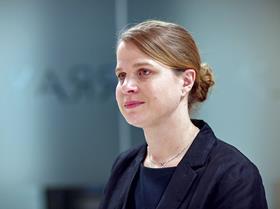The Supreme Court has this morning handed down its judgment in what has widely become known as the 'gay cake case' – Lee v McArthur and Ashers.
The facts of the case are well known – Mr Lee asked Ashers bakery in Belfast to make a cake decorated with images of Bert and Ernie from Sesame Street and the slogan 'Support Gay Marriage'.

Ashers refused the order on the basis that the message in support of gay marriage was contrary to the Christian beliefs of the owners. Mr Lee is gay, but Ashers have always maintained that this fact is irrelevant to their refusal to complete the order – their argument is that they were objecting to a political concept rather than to the sexuality of an individual customer. Their arguments were rejected at both first instance and in the Court of Appeal in Northern Ireland. However, the Supreme Court has overturned those decisions and upheld Ashers’ right to decline the order.
The case has attracted significant attention – with feelings running high on all sides. Even some LGBT campaigners suggested that Ashers should not be forced to bake a cake which expresses support for a political idea they oppose – however misplaced they might think that opposition is. Just as people must be free to express their beliefs, it is argued, they should also be free not to express a belief with which they disagree.
Others argue that Ashers were seeking to hide their discriminatory attitudes behind a spurious freedom of speech argument. The reliance on associative discrimination in the Court of Appeal was a convoluted way of concluding that there was discrimination, while seemingly exonerating the bakery of any intentional malice.
Associative discrimination allows someone to bring a claim for discrimination because of their association with a protected characteristic.
For example, as in the case which clarified UK law on this point, where an employee is bullied by her employer because she has a disabled son, she will be able to bring a claim for associative disability discrimination. She is not herself disabled, but has been discriminated against because of her association with someone who is.
The difference in the Ashers case is that Mr Lee does have the protected characteristic in question. The court at first instance found that it was a straightforward case of direct discrimination as Mr Lee’s support for same-sex marriage was indissociable from his sexual orientation.
The Court of Appeal in Northern Ireland disagreed with this – going so far as to say that it was 'clearly wrong' because 'many heterosexual people support gay marriage and some gay people oppose gay marriage'. The Supreme Court has gone further and said that the objection of Ashers cannot be linked to Mr Lee’s sexuality or his association with the gay and bisexual community.
In the judgment of the Supreme Court, the message 'was not indissociable from the sexual orientation of the customer, as support for gay marriage was not a proxy for any particular sexual orientation'. Lady Hale, giving the leading judgment, held that the benefit of the “support gay marriage” message did not only accrue to gay and bisexual people, as was held by the Court of Appeal: 'It could also accrue to the benefit of the children, the parents, the families and friends of gay people who wished to show their commitment to one another in marriage, as well as to the wider community who recognise the social benefits which such commitment can bring.'
Many who have been following the case will be surprised by the final outcome. Some may argue that Mr Lee was free to take his custom elsewhere, rather than pursue his claim (with the support of the Equality Commission in Northern Ireland) to the highest court in the land.
But there is a very important issue of principle at stake here – where does political conviction end and discrimination begin? This case and the reactions to it demonstrate how blurred the lines can become between a political opinion and a discriminatory attitude.
The outcome would clearly have been the same if the message on the cake had been 'Support Brexit'.
But would the Court have been so clear had the slogan been “support mixed race marriage”? The Supreme Court has come down firmly in favour of freedom of expression in this case – it remains to be seen how far it will allow this fundamental principle to extend, and along the way how many more alleged discrimination cases will be defended by reference to freedom of expression arguments.
Beth Hale is an employment lawyer and technical director, CM Murray


















![David Lester (senior partner at Blythe Liggins), Darryl Barnes, Jagdeep Sandher (head of dispute resolution at Blythe Liggins)[4]](https://d1d8vslyhr7rdg.cloudfront.net/Pictures/274x183/4/2/8/116428_davidlesterseniorpartneratblytheligginsdarrylbarnesjagdeepsandherheadofdisputeresolutionatblytheliggins4_981603_crop.jpg)








31 Readers' comments